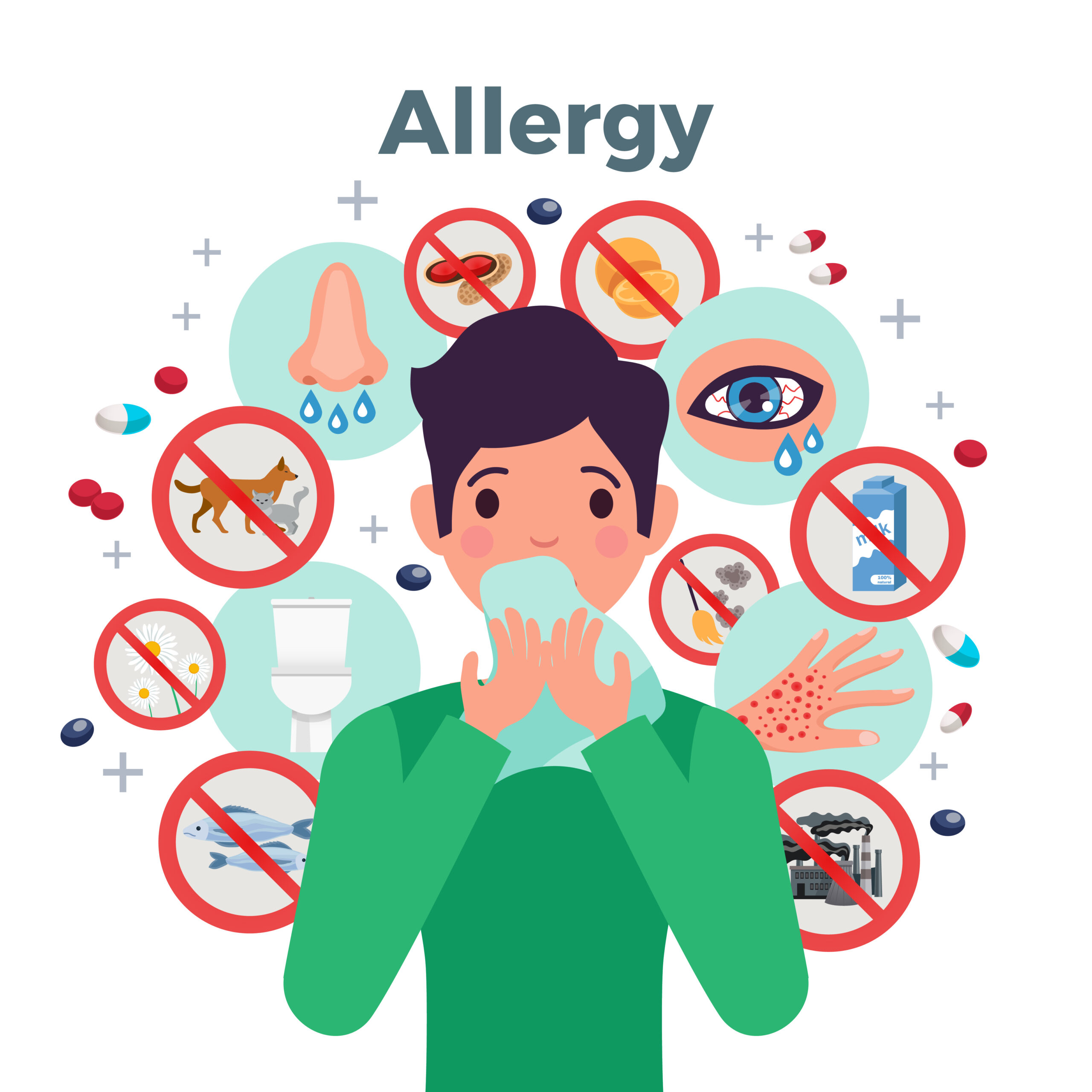Insight Allergy & Immunology – Allergies are one of the most common chronic conditions in the United States, impacting as many as 100 million Americans of all ages, genders, races, and socioeconomic groups each year. From animals and pollen to food and medications, it is likely you are experiencing allergies now or have at some point in your life. Unfortunately, there are many myths and misconceptions about allergies that often lead to confusion, delayed treatment, and unnecessary suffering. To help you make sense of your symptoms and get meaningful relief, the team at Insight Allergy & Immunology has debunked eight common myths about allergies.
It Is Impossible to Outgrow Allergies
A common misconception about allergies is that once you have one, it is for life. However, it is possible to outgrow some allergies naturally over a period of time. For example, egg, milk, soy, and wheat allergies diagnosed in childhood are often outgrown by the teenage and early adult years. The Mayo Clinic reports that 60 to 80 percent of children eventually outgrow milk and egg allergies, for example. Other allergies like hay fever, dust, and mold are less likely to go away and typically last for as long as you are exposed to the allergen.

There Is No Difference Between a Cold and an Allergies
Although colds and allergies share similar symptoms like a runny nose, sneezing, and congestion, there are some key differences between the two. The biggest difference is that a cold is caused by a virus, whereas an allergy occurs when the immune system overreacts to an allergen. Another difference is the types of symptoms associated with colds and allergies. Body aches and fever are both linked to colds, but itchy and watery eyes associated with allergies are rarely a symptom of colds. Further, colds tend to only last a few days and allergies can persist from days to weeks at a time.
There Are No Treatments For Allergies

Another common myth about allergies is that they are not treatable and you need to let an allergy run its course. Although there is no cure for allergies, the surest way to minimize allergic reactions and symptoms is to avoid triggers (e.g. animals, foods, etc.). When this isn’t possible, there are many safe and effective treatments to help reduce symptoms. This includes medications, immunotherapy, and emergency epinephrine for severe allergies.
Medications Should Only Be Taken When Experiencing Symptoms
Many people who experience seasonal allergies only take medications in response to symptoms. But did you know being proactive before your symptoms begin can make a big difference in the severity of your allergies? This is because certain medications like nasal steroids limit the release of chemicals in the body that trigger allergic reactions in the nose and eyes. As always, ask your doctor before you begin any treatments.
Moving to Another Region Can Decrease Allergies
For people suffering with chronic seasonal allergies, it may seem like moving to another part of the country is the only way to find relief. However, experts say moving from a state with an abundance of trees, grass, and pollen to desert regions, for example, probably won’t help you escape allergies. This is because every region has plants that pollinate at certain points in the year and indoor allergens like pet dander can exist anywhere. It is also likely that you will develop new allergies in a different environment.

Allergies Can’t Occur During Winter
The winter season tends to be one of the less active times of the year for allergies, but that does not mean they are not possible. Instead of pollen and other seasonal allergies that are common in the summer months, people spending more time indoors can experience allergens from mold, dust mites, smoke from fireplaces, and even fresh Christmas trees and wreaths. Conditions like eczema and urticaria are also more likely to flare up in the winter months because the skin experiences more exposure to cold air, decreases in humidity, and hot baths and showers.
Short-Haired Pets Don’t Cause Allergies
It is common for people with allergies to choose cats and dogs with short hair, believing they are less likely to cause symptoms. However, these breeds are just as likely to expose you to dander, urine, and saliva, which all contribute to pet allergies. If you are unable to part with your pet and you have less severe allergies, there are a few ways to reduce allergic reactions, including limiting contact as much as possible, using air purification devices, vacuuming regularly, and always washing your hands after touching your pet.
Allergies Are Not Serious
A common belief is that allergies are only a minor nuisance that can be easily managed through medications and lifestyle changes. While this may be true for some people, allergies can also be very dangerous for others. Allergies can lead to many serious conditions that impact quality of life, including difficulty breathing, stomach pain, swelling, and anxiety. Life-threatening conditions like anaphylaxis are also possible and require immediate medical attention.

Allergies are very common and most of us will experience them at some point in our lives. Yet much of what we think we know about allergies tends to be rooted in myths. By keeping these misconceptions in mind the next time you or a loved one experiences allergy symptoms, you will be better equipped to take action and prevent serious complications from occurring. For more information about allergies and to schedule an appointment with Insight Allergy & Immunology, contact us today.
FAQ
Q: What is an allergist?
A: Allergists are doctors who specialize in identifying, treating, and preventing allergies and conditions affecting the immune system.
Q: What do allergy doctors treat?
A: Allergy doctors (or allergists) treat a wide range of conditions related to allergies and the immune system. Conditions may include seasonal allergies like hay fever, food allergies, drug allergies, pet allergies, eczema, hives, asthma, and immune disorders.
Q: Who should see an allergist?
A: People of all ages and symptom severity can see an allergist. It is generally time to schedule an appointment with an allergist if you are experiencing a new allergy or symptoms, have difficulty managing your symptoms, or have symptoms that are impacting your quality of life.

